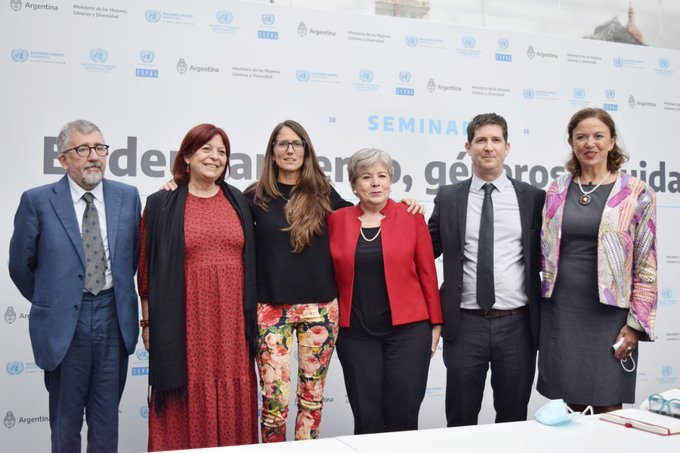Buenos Aires, 29 March 2022 (TDI): The Economic Commission for Latin America and the Caribbean (ECLAC) organized the “Debt, Genders, and Care Seminar.”
The ECLAC, the Ministry of Women, Genders, and Diversity of Argentina, and the United Nations in Argentina jointly organized the Seminar.
The two-day event is held to discuss issues such as the gender gaps regarding access to and use of the financial system and problems faced by women labor force as a result of the Covid19 pandemic.
The talks included the presentation and discussion of a series of studies carried out by ECLAC and its partners in Argentina within the framework of the UN project “Socioeconomic recovery from the COVID-19 pandemic from a gender perspective,”
Alicia Bárcena, Executive Secretary of ECLAC, and the Argentine Minister, Elizabeth Gómez Alcorta participated in the Seminar.
The Address
In her remarks, the Executive Secretary said, “We must break statistical silence, raise the visibility of monetary management of care faced by women, reverse debt associated with care at home.”
She said the women must “close gender gaps regarding access to and use of the financial system to guarantee women’s economic autonomy in the region’s countries.”
Moreover, she expressed, “the COVID-19 pandemic led to many women leaving the labor force. Labor market participation by women in Latin America and the Caribbean suffered an eighteen-year setback in 2020, dropping to 47.7%.
It is estimated that this figure was as high as 50% in 2021, which means that 1 in 2 women is still outside the job market”.
In addition, according to data collected by ECLAC, unemployment at the regional level in 2021 affected 11.8% of women, 3.7 percentage points above the rate of unemployment for men (8.1%).
Furthermore, Minister Gómez Alcorta pointed out that the unjust organization of care is one cause of the feminization of poverty. The COVID-19 crisis deepened the care crisis and made it more visible.
Addressing the issue of the gender pay gap in the country, she said, “the women’s movement in Argentina has been taking to the streets for a long time with a phrase on their lips: the debt is owed to women.
We repeatedly say that we are owed years of unpaid domestic work and care. We are owed billions of pesos for the lower salaries we receive for doing the same job as our male colleagues.
We are owed rights, education, healthcare, but, above all, we are owed time: for leisure, pleasure, and personal development”.








